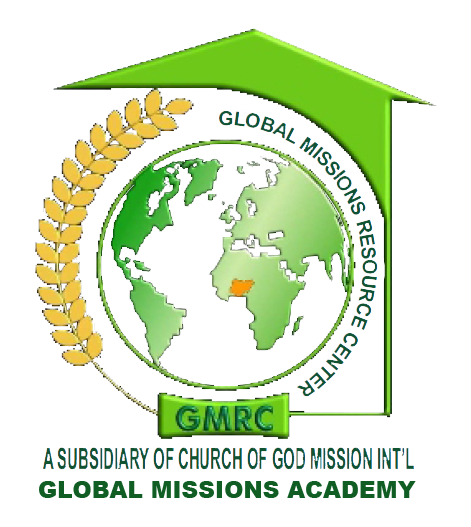
ACCEPTANCE AND REGISTRATION OF STUDENTS
The Global Missions Academy welcomes applications from every passionate believer, minister of the gospel, serving Church leader, and career missionary.
Enrollment in the Global Missions Academy holds no restrictions; therefore, it is open to singles and couples passionate about the Gospel.
Admission into the Academy requires applicants to meet the following criteria:
1.Pick up and return admissions forms with the appropriate fees (including subsidized accommodation).
2.Provide evidence of personal salvation and commitment to Christ by writing a testimonial (not more than 400 words).
3.Provide references from the local pastor and two other church leaders (contact the Admin office for reference forms).
4.Provide evidence of educational qualifications (where applicable).
5.Attend an interview with the Academy’s Admissions Committee.

SOME SPECIFICS OF CGMI-GMA
•Subsidized accommodation spaces are available at the Global Missions Resource Centre (GMRC) campus. Students should be prepared to share rooms with fellow students.
•Applicants must have at least a high school diploma. However, students who can express themselves well can be eligible for enrolment after a pre- test.
•A one-time registration fee of N5,000 is required.
•A subsidized payment will include housing, utilities, and tuition… Tuition
cost does not include personal expenses. *
•Limited scholarships are available for ‘early birds.’ Contact the Admin office
for more information.
•Applications are due at least three weeks before the start of each semester.
*Students who prefer to make personal and off-campus housing arrangements must ensure proximity to campus.
*Plans are already underway for online learning.
What Does the Training Involve?
•At least 20 hours in the classroom each week as faculty teaches the scheduled courses.
•Two weeks of practical short-term missions per quarter.
•Regular reading and homework assignments by the teaching staff.
•Personal mentorship time with a missions mentor or field supervisor.
•Weekly accountability groups.
•Spiritual Formation.
•Partner with brothers and sisters from other cultures and ethnicity.
•Learn and practice disciple-making techniques in a multi-ethnic setting.
•Labor alongside our long-term ministers or field workers.
ORIENTATION OF STUDENTS
Upon acceptance into the Academy, students will participate in a comprehensive orientation program designed to prepare them for the Academy’s programs and activities. The orientation program will cover the Academy’s policies, procedures, and expectations. Students will also receive information about the Academy’s programs, events, and resources.
DURATION
GRADING & CERTIFICATION
Each course at the Academy carries two (2) credit scores.
The courses offered at the Academy are graded 40 credit hours in total.
To graduate from the Missions Academy Diploma Course, a student must complete the 40 credit hour courses, obtain reports on conduct and performance from their mission field supervisors every quarter, and satisfy all other stipulated requirements before graduation.
Quarterly field reports will make up 20 percent (%) of the total grading, Graduating students will be awarded a Diploma in Missions Certificate from All Nations for Christ Bible Institute International.
CGM MISSIONS ACADEMY EVALUATION PROCEDURES
1.Student Performance Evaluation.
The Global Missions Academy will embark on regular assessments to help measure the progress and academic achievements of the students. Different assessment tools will be deployed, including tests, exams, and class projects, to measure the student’s knowledge and skills.
2.Teacher Evaluation.
Regular evaluations must be carried out on the teachers’ performance. Students can help identify areas where they need improvement from the teachers. The Academy will also conduct peer evaluations, self-evaluations, and supervisor evaluations to ensure that the students are given the best.
3.Curriculum Evaluation.
This is essential to ensure the curriculum aligns with the Academy’s mission and vision. Regular evaluation of the curriculum will help identify areas where the curriculum needs to be modified to meet the Academy’s objectives.
4.Student Satisfaction Surveys.
Regular surveys can help assess the students’ satisfaction levels with the Academy’s policies, curriculum, and teachers. This feedback will help the administration to identify areas for improvement.
5.Financial Evaluation.
It is essential to keep track of the Academy’s finances regularly. Financial evaluations will help identify areas where the Academy is overspending or underutilizing resources.
6.Facility Evaluation.
Regular evaluations of the Academy’s facilities will help identify areas that need maintenance or upgrading.
